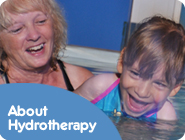Curriculum
Curriculum
SUNNINGDALE CURRICULUM
Our ‘Creative Curriculum' encompasses all areas of learning within a holistic approach that meets the individual needs of our pupils. Each area of learning includes individual subject areas that are presented in a cross-curricular format to ensure learning is transferable and meaningful.
We ensure learning is focused and exciting by utilising a termly theme as a ‘starting point' and always take into account the interests that motivate our pupils.
Each pupil accesses the curriculum through their own personalised PLP (Personal Learning Plan) through individual, small group activities. Our ‘creative' approach encourages pupils to learn through exploration, experimentation, by taking risks and learning to be independent within a framework that recognises the importance of promoting individual learning targets.
The school literacy curriculum encompasses speaking and listening, pre/reading, early phonic awareness (letters and sounds) and pre/writing. Individual pupils will access these areas at the appropriate level following assessment using the PIVAT assessment schedule. Where appropriate some pupils may access more formal phonic awareness using ‘Jolly Phonics.'
We offer a range of therapies that improves curriculum accessibility through the recognition of individual sensory needs. These include Hydro, Rebound, Light and Sound Therapy. All therapists are members of the school staff who have undertaken specialist training.
Sunningdale School's curriculum takes into account all statutory guidance including recommendations for the Early Years Foundation Provision.
Classroom Learning Environment
The classroom is set out based on the Early Years Foundation Stage Provision; providing access to a variety of activities to support individual targets and to develop independent learners.
Where possible staff work with the pupils interest, so that they follow the child’s lead in where they choose to play and learn. Staff work creatively to fit the individual target for the child within their chosen activity. For instance if the child is playing in the sand the member of staff supports the child to develop their mark making skills or encourage them to fill and empty containers or find hidden objects to count to support their Maths targets.
Observations, Evaluations and Next Steps to Learning are recorded with photographic evidence on the individual child’s planning, which is then used to plan future learning and is filed in the individual child’s Learning Journey Files.
Focused Group work also takes place within the classroom with a small group of children and a member of staff. The outdoor environment and therapies are also incorporated within the classroom planning to provide "hands on learning” whilst encouraging the child to transfer their learning around different areas of the school.


